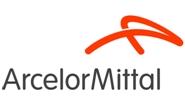Market Segment

August 2, 2015
ArcelorMittal Expecting Decline in Apparent Steel Consumption for 2015
Written by Sandy Williams
ArcelorMittal reported second quarter EBITDA of $1.4 billion and net income of $179 million. Results for the company were impacted by improved steel and mining volumes that were offset by lower price. Steel shipments totaled 22.1 million tons, up 3.4 percent year over year. Quarter sales fell 18 percent to $16.9 billion compared to $20.7 billion in 2014.
Crude steel production for the NAFTA segment was down 2.3 percent sequentially to 5.8 million tonnes. Steel shipments were up 3.3 percent from first quarter to 5.6 million tonnes due to a 2.3 percent increase in flat products and a 5.1 percent increase in long products.
NAFTA sales fell 4.9 percent from Q1 to $4.5 billion million. Import pressure and weaker demand negative affected pricing for flat rolled steel which fell by 8.8 percent in second quarter. Average steel selling price was $726/tonne, down from $796/tonne in Q1 and $856/tonne in Q2 2014
CEO Lakshmi Mittal said it may restructure finishing operations in the U.S. No specifics were given on any changes to U.S. facilities or production and Mittal said no announcements are likely until labor contract negotiations are completed.
In its outlook and guidance remarks, ArcelorMittal said it is expecting global apparent steel consumption to be stable in 2015. European demand is expected to grow by 1.5 to 2.5 percent in 2015. Destocking in the first half of the year will contribute to a decline in apparent steel consumption in the U.S. of 3 to-4 percent for the year. China demand is expected to decrease by around 1 percent.
ArcelorMittal stated, “Assuming current market conditions persist into 2H 2015, and given an improvement is expected in the US due to the ongoing end of destocking and improved Calvert operations, as well as actions taken to improve the cost base, the Company’s guidance for 2015 remains unchanged and we continue to expect 2015 EBITDA to be within the range of $6.0 – $7.0 billion.”
Lou Schorsch, CEO of ArcelorMittal Americas said he believes that they have a “very solid case on unfairly traded imports coming into the U.S.” He did not speculate on new trade cases but noted that the surge of imports covers a broad range of products.
Mines Canada had record iron ore shipments of iron ore in June of 2.7 million tons and 7 million tons for the second quarter. When asked about potential changes in supply of pellets to Dofasco and to mills in the U.S. (a question that was also brought up in the Cliffs Natural Resources earnings call), Schorsch said it was worth looking at. He added that the contract with Cliffs does not expire until the beginning of 2016 and therefore there is “quite a long time before we need resolution on how we move forward with this.”
Lead times improved at the beginning of second quarter and have been relatively stable since. After the sharp drop in demand, “almost a buyer strike” connected with inventory adjustment in the first quarter, there has been no further tightening of lead times. In the U.S. lead times are about 3-4 weeks right now which is considered relatively normal for hot rolled products on the flat rolled side. Order flow has been improving slowly but ArcelorMittal declined to comment on potential price increases.







